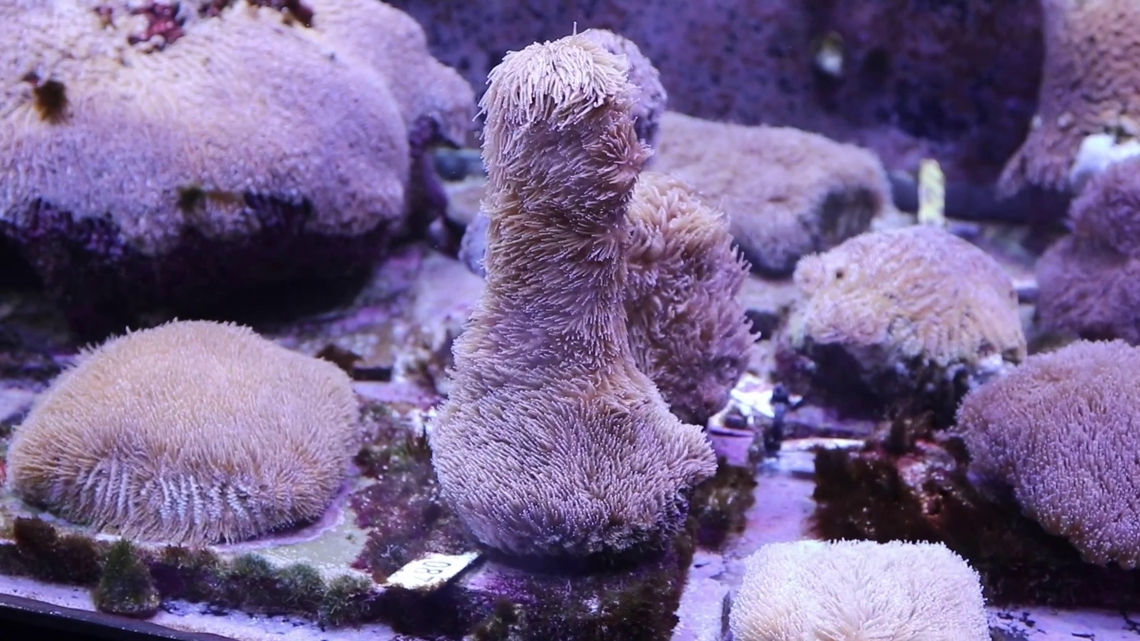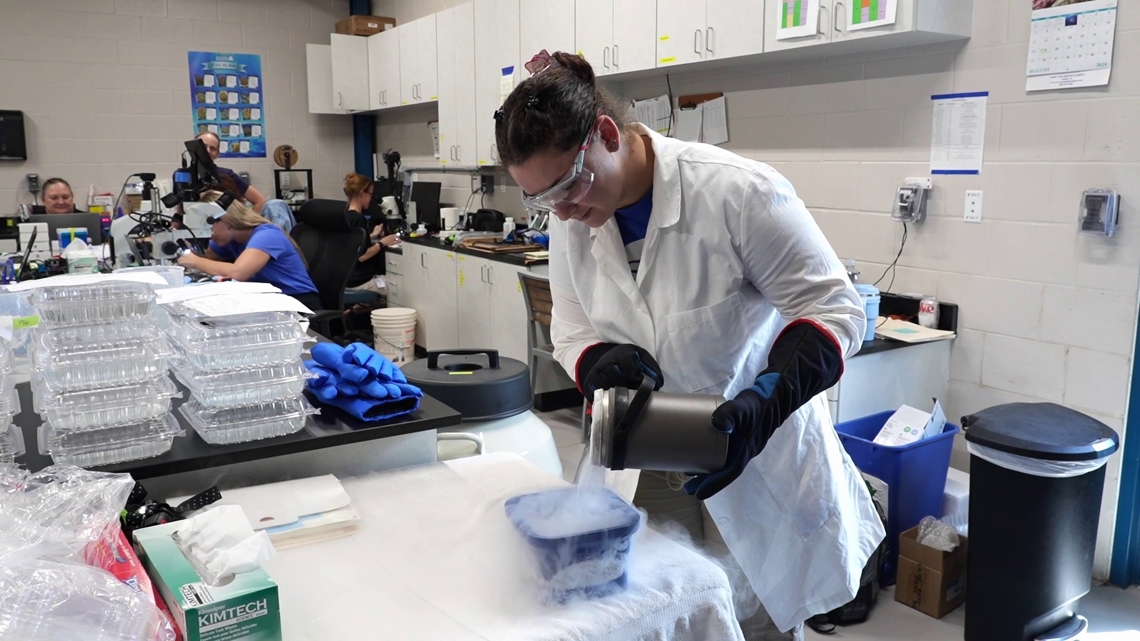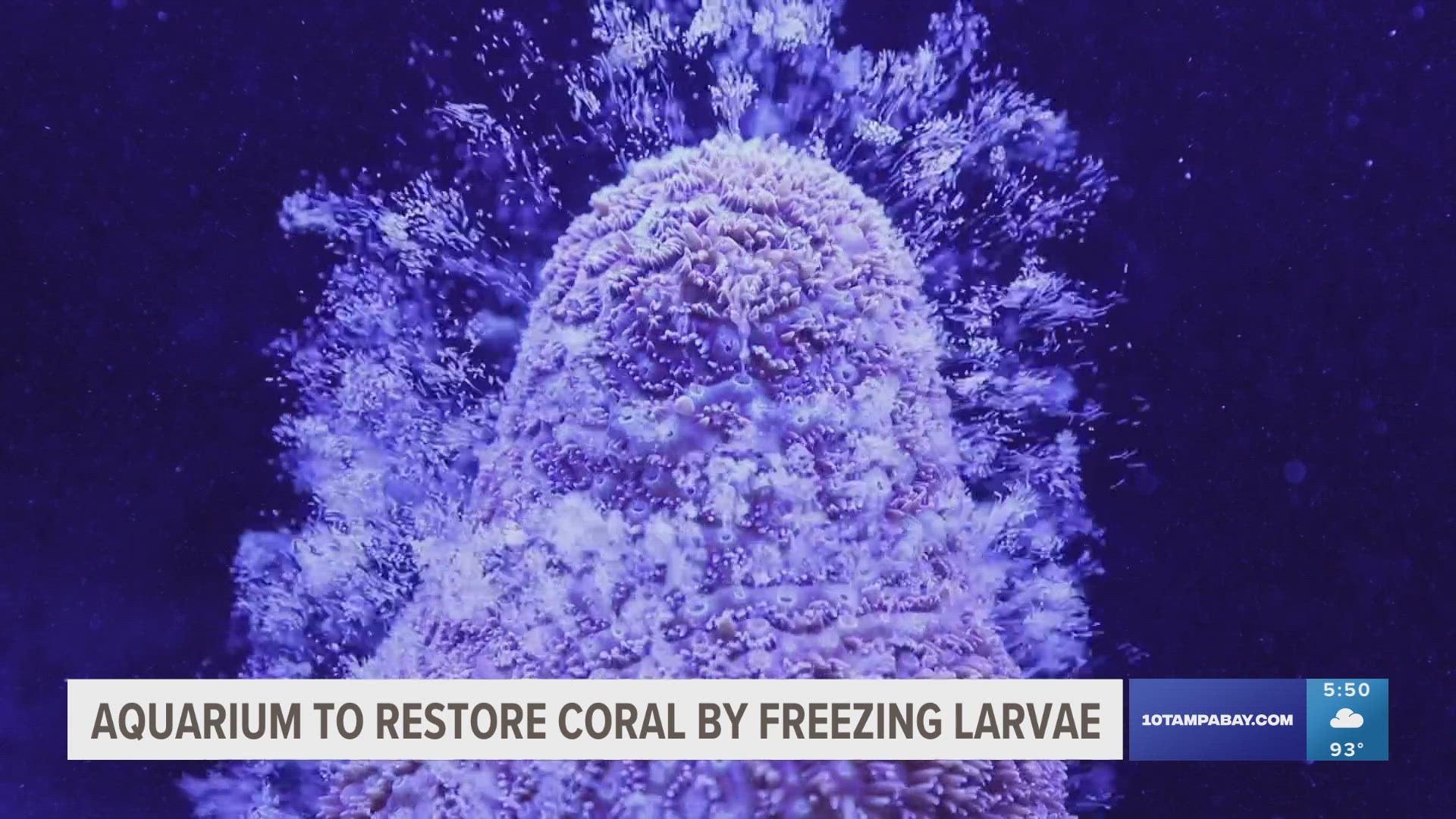TAMPA, Fla. — A group of international biologists and experts are attempting to freeze coral larvae to preserve the endangered species.
Pillar coral, which looks like fingers or a cluster of cigars growing upwards, have very small, swimming larvae that are only a fraction of a millimeter long. Their size creates the opportunity to freeze them in an alive form in liquid nitrogen. To do this, scientists and experts will use cryomesh technology to preserve tens of thousands of larvae, according to a news release from The Florida Aquarium.
The experts are collaborating this week at the aquarium's Coral Conservation and Research Center in Apollo Beach. If successful, larvae can be thawed at a later time.
"Frozen larvae can live in biorepositories for decades or even centuries until needed for species recovery and reef restoration," the release said. "If successful, it will be the first time scientists have cryogenically preserved, thawed and raised corals at the larval stage."
Coral reefs are an important part of the environment because they provide shoreline protection, habitats for marine life, millions from tourism and millions for fishing industries.


The National Oceanic and Atmospheric Administration lists pillar coral as endangered throughout the region of the Caribbean Sea, Gulf of Mexico and southern Florida. This type of coral can live for hundreds of years but is threatened by ocean warming, disease and habitat loss.
The summer of 2023's intense heat wave led to the worst coral bleaching ever recorded in Florida's Coral Reef.
Bleaching happens when the coral loses their zooxanthellae, which are the microscopic algae living within the tissue. The algae gives coral its color so when the animal loses it, they look white or "bleached." When coral doesn't have this algae for longer than a couple of weeks, they can starve to death.


The El Niño event last summer caused the ocean surface to warm above average, which contributed to the severity of this bleaching event. But, it also has been happening more frequently over the past few decades due to climate change, according to Florida Fish and Wildlife.
Residents and visitors can also help protect corals by conserving energy, water and reducing chemical and sunscreen pollution by using sunscreen with zinc oxide or titanium dioxide, which is not toxic to corals.

